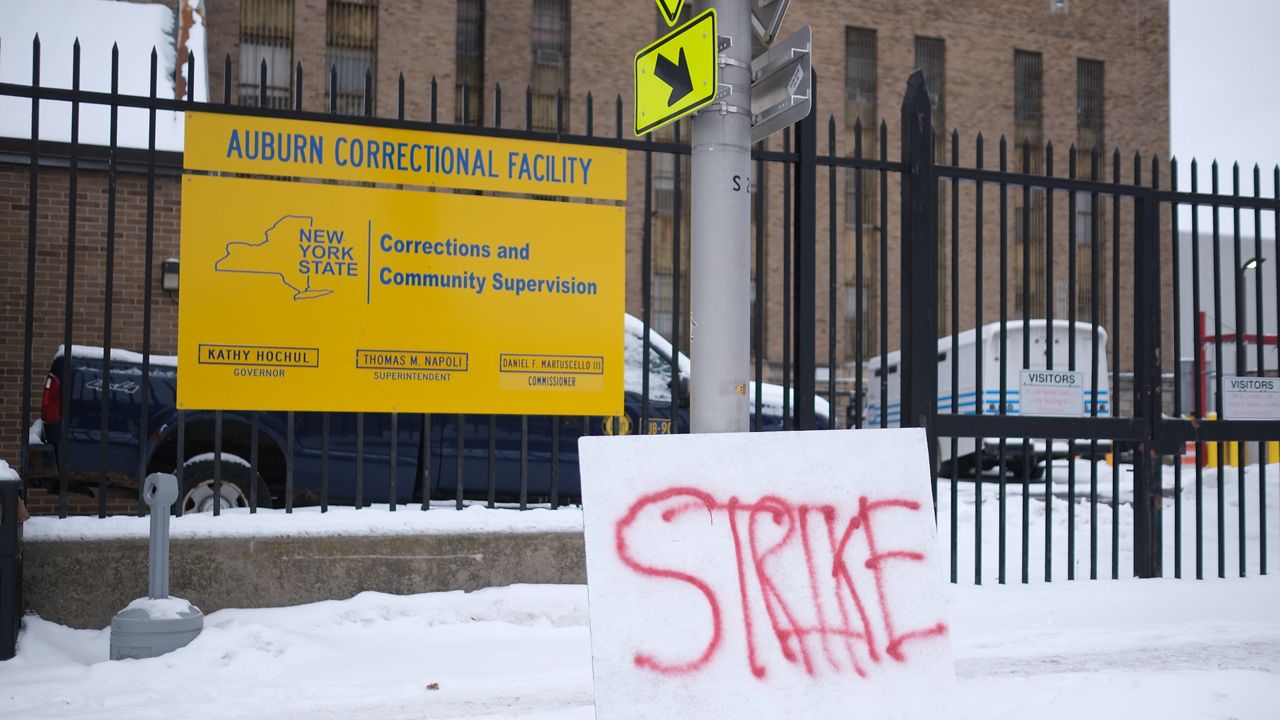County leaders across the state are thrilled the Legislature rejected Gov. Kathy Hochul's budget ask to withhold expanded federal aid for Medicaid from localities — a proposal that would cost them millions more dollars per year.
But they refuse to back down, regardless of the Senate and Assembly's support, and warn the changes would be met with future legal action if included in the final state budget due next month.
Onondoga County Executive Ryan McMahon says the change would cost $14 million for his county, which is partially through its fiscal year.
"Our budget started in January, which would be devastating," he said Thursday.
New York has the second-largest number of people enrolled in Medicaid in the country. Federal eligibility for Medicaid was expanded under the Affordable Care Act, with Congress agreeing to pay an increased share of the cost to states and local governments.
Hochul's proposal to shift enhanced Federal Medicaid Assistance Percentage payments to the state's coffers is illegal, McMahon said. It's estimated to put localities on the hook for $625 million in new costs annually.
"The congressional intent is very clear here," he said. "We are supposed to be receiving this funding. And certainly, if for any reason, there's an intercept, I'm sure counties will use all their legal rights and exercise those."
Neither the Senate nor the Assembly included the proposal in their one-house budgets due this week, with some members citing legal concerns.
Hochul continues to defend including the provision in the budget due next month, arguing counties are in better fiscal shape with higher tax revenue and state aid for local programs.
"What we're simply saying is that the extra money from the federal government that's there to pay for increases in Medicaid should actually go to the entity that is picking up those costs, and that is the state," she said about her push for the cost shift earlier this week.
Counties and local governments benefit from an additional $1.37 billion in local revenue since 2020 after the state increased enforcement of payment of taxes on online sales, according to the governor's office Thursday.
The state enacted a freeze, or hard cap, on counties' share of Medicaid costs in 2015 as the program expanded. It amounts to about $6.4 billion for the state annually, with the state assuming about $1 billion in Medicaid expansion costs each year that would have been charged to localities before 2015, according to Hochul's office.
"Given the governor's historic health care investments, the state is utilizing the available federal dollars to fund critical investments in Medicaid to ensure access, promote equity and stabilize the health system serving New York's most vulnerable," Hochul's spokesperson said in a statement. "We will continue working with county leaders, other local government leaders and the Legislature as we finalize a budget that meets the needs of all New Yorkers."
Hochul's 2023-24 executive budget includes nearly $6.2 billion in aid for local programs and counties outside New York City, according to the governor's office. Outside of Medicaid changes, the governor's budget proposal has a positive impact on counties of $62.7 million.
But McMahon says nothing proposed would be enough to offset the multi-million-dollar gap the Medicaid cost changes would create for counties.
"There's nothing that has been proposed that would offset $14 million for my county this year and every year moving forward," he said, adding counties across the state are in strong fiscal shape because they've been forced to make difficult cuts and decisions through the pandemic.
"When we have programs, we manage them and we manage them well," McMahon continued. "...This is the largest New York state budget in its history, and the only people they're asking to sacrifice are county governments, which are the governments that got us through the global health pandemic."
Officials with the nonpartisan Citizens Budget Commission say localities' responsibility for Medicaid should remain locked in place, and it's the state's job to manage Medicaid — a federal program.
"It's the state's responsibility to manage it and it should be the state's responsibility to pay for it, so shifting more costs onto local governments does not make sense," said Patrick Orecki, Citizens Budget Commission state policy director.
It's something lawmakers on both sides of the political aisle have rejected.
New Assemblyman Matt Slater says his Democratic colleagues in the majority must keep the change out of the final budget to prevent localities from raising property taxes or cutting services.
"We know that we're facing an affordability crisis," said Slater, a Republican from Yorktown.
Slater has spoken with Putnam County Executive Kevin Byrne, a former assemblyman, about what it would mean for county finances.
"When he looks at his budget, it would force them to cut services or raise property taxes," Slater said. "Neither one of them are an acceptable option."
The state estimated and advanced counties their federal reimbursement for Medicaid after the program was expanded with the expectation the state would pay localities the rest of their share of the assistance at a later date.
The state has not reconciled that amount since Fiscal Year 2016-17, owing each county millions of dollars in back payments.
The state owes Onondaga County more than $22 million in reconciliation payments, according to a Freedom of Information Law Request response from the state Health Department sent to county officials last year.
Representatives with Hochul's office refused to answer questions about the legality of the proposed cost shift or the reconciliation payments owed to localities, referring to their provided statement.







)

